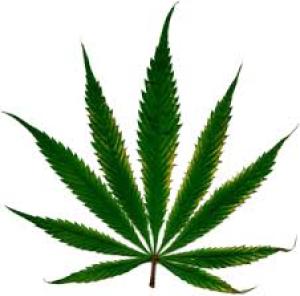The Empire State is the 16th state to legalize marijuana.
New Mexico becomes the second state in as many days to move to legalize marijuana.
Slowly but surely, a drug decriminalization wave is beginning to build.
With blue states already looking at marijuana legalization and beyond, the medical marijuana action these days is taking place in red states.
White House staffers get fired or suspended for past marijuana use, NYC mayoral candidates call for safer injection sites, more.
Colorado's governor signs a marijuana socieal equity bill, Arizona's sheriffs and prosecutors don't want to lose civil asset forfeiture, Mexican cartel hitmen gun down 13 cops in Mexico state, and more.
Some Garden State Republican legislators have a problem with the state's new marijuana legalization law, congressional drug warriors file a bill aimed at methamphetamine, and more.
New York legislative leaders say they're almost ready to file a marijuana legalization bill as the clock ticks down, South Dakota's governor is proposing marijuana decriminalization as part of a plan to lower the number of plants medical marijuana patients can grow, and more.
The Biden administration has filed a brief with the Supreme Court supporting an effort to expand sentencing reductions under the 2018 First Step Act, the New Mexico legislature has voted to legalize marijuana, and more.
Democrat lawmakers in Congress ask the Biden administration to reconsider its policy on past employee marijuana use, a Minnesota bill to provide protections for informants passes the Senate, and more.
New Jersey's governor has signed a bill regarding parental notification for teen pot busts, the North Dakota Senate kills marijuana decriminalization, and more.
Marijuana legalization efforts could come to fruition in both New Mexico and New York as early as today, a Louisiana poll has surging support for marijuana legalization, the GAO reports that Good Samaritan laws have positive effects, and more.
The New York legislature approved marijuana legalization last night and the governor says he will sign the bill, a drug decriminalization bill has been filed in Washington state, North Carolina Republican senators head in the opposite direction when it comes to fentanyl, and more.
The Biden administration has filed a brief with the Supreme Court supporting an effort to expand sentencing reductions under the 2018 First Step Act, the New Mexico legislature has voted to legalize marijuana, and more.
North Dakota lawmakers reject a bid to let voters decide on marijuana legalization, a West Virginia medical marijuana expansion bill remains alive, drug overdose deaths are up during the pandemic, and more.
After hours of debate Tuesday, the state Senate voted 40-23 to approve the Marijuana Regulation and Tax Act (MRTA) (Senate Bill 854), which would immediately legalize the possession of small amounts of marijuana and set the stage for a taxed and regulated legal marijuana market. The House followed up hours later, approving the bill on a 100-49 vote.

Riding the New York City subway just got a little happier. (Creative Commons)
An embattled Governor Andrew Cuomo (D) reached an agreement with legislative leaders on the bill over the weekend and has said he will sign it into law. He has 10 days to either do so or veto it or it becomes law without his signature.
Tuesday night, Cuomo said he looked forward to signing the bill. "New York has a storied history of being the progressive capital of the nation, and this important legislation will once again carry on that legacy," he said.
New York becomes the 16th state to legalize marijuana and the third to do through the legislative process. It is also the second most populous state to do so after California. And, along with legalization in New Jersey earlier this year, the Empire State's decision to end its war on marijuana will undoubtedly add pressure on remaining neighboring pot prohibition states to get on the bandwagon.
Under the bill, people 21 and over will be able to possess up to three ounces and grow up to six plants, three of them mature. Past marijuana possession convictions will be automatically expunged. But legal sales will not commence until a state committee sets up rules and regulations for the nascent industry.
Keen recognition of racial injustice in the prosecution of the war on the drugs guided legislators as they crafted their vision of progressive marijuana law reform. As leading bill supporter state Senator Liz Krueger (D-Manhattan) enumerated in a statement after the legislation took final form, it features a strong set of social equity provisions, including:
- Dedicating 40% of revenue to reinvestment in communities disproportionately impacted by the drug war, with 40% to schools and public education, and 20% to drug treatment, prevention and education.
- Equity programs providing loans, grants, and incubator programs to ensure broad opportunities for participation in the new legal industry by people from disproportionately impacted communities as well as by small farmers.
- A goal of 50% of licenses going to equity applicants.
Krueger, who, along with other legislative leaders and a broad-based coalition of activists, has been trying to get legalization passed since 2013, pronounced herself pleased in a statement after the vote.
"Today is an historic day for New Yorkers," she said. "I could not be more proud to cast my vote to end the failed policies of marijuana prohibition in our state, and begin the process of building a fair and inclusive legal market for adult-use cannabis. It has been a long road to get here, but it will be worth the wait. The bill we have held out for will create a nation-leading model for legalization. New York's program will not just talk the talk on racial justice, it will walk the walk."
In her statement, Krueger gave shout-outs to Assembly Majority Leader Crystal Peoples-Stokes (D-Buffalo) and to activist groups such as the Drug Policy Alliance (DPA), both of which have been working the issue for years.
"I am proud to have fought so long for this legislation and to finally see it pass," said Peoples-Stokes. "We are providing marijuana justice by ensuring investment into the lives and communities of those who suffered for generations as a result of mass incarceration. The results will be transformative for people across New York State -- it will create economic and research opportunities, jobs across a wide variety of sectors, and a safe and reliable product."
"This day is certainly a long time coming," DPA executive director Kassandra Frederique said in a statement after the vote. When we started working toward marijuana reform 11 years ago, we knew we had our work cut out for us. Because of the sheer extent of harm that had been inflicted on Black and Brown communities over the years, any marijuana reform that was brought forth had to be equally comprehensive to begin repairing the damage. And I can confidently say, the result is something truly reimaginitive. We went from New York City being the marijuana arrest capital of the country to today New York State coming through as a beacon of hope, showing the rest of the country what comprehensive marijuana reform -- centered in equity, justice and reinvestment -- looks like."
And a new day dawns for New York.
The Drug Policy Alliance is a funder of StoptheDrugWar.org.
back to top
New Mexico has become the second state in as many days to see lawmakers approve marijuana legalization. New York did it on March 30, and with the approval of House Bill 2, the Cannabis Regulation Act, and Senate Bill 2, the Expungement of Certain Criminal Records Act, by legislators in Santa Fe, New Mexico got it done on March 31.

The Land of Enchantment is about to get a bit more enchanting.
In both states, Democratic governors have said they will approve the bills. New York Governor Andrew
Cuomo said after the Albany vote he looked forward to signing the legislation, and New Mexico Governor Michelle Lujan Grisham, who
called a special session precisely to get legalization passed, made her intentions clear earlier in March,
saying "We're going to get cannabis because I am not going to wait another year."
She was even more clear after the bills finally passed: "This is a significant victory for New Mexico," she said in a post-vote statement. "Workers will benefit from the opportunity to build careers in this new economy. Entrepreneurs will benefit from the opportunity to create lucrative new enterprises. The state and local governments will benefit from the additional revenue. Consumers will benefit from the standardization and regulation that comes with a bona fide industry. And those who have been harmed by this country's failed war on drugs, disproportionately communities of color, will benefit from our state's smart, fair and equitable new approach to past low-level convictions."
Once Lujan Grisham signs the bills, New Mexico will become the 17th state to legalize marijuana and the fourth to do it via the legislative process, after Vermont, Illinois, and New York. Virginia is about to join this group -- the legislature has already passed a legalization bill, but Gov. Ralph Northam (D) has proposed an amendment to speed up the implementation of legalization from 2024 to this coming July. The General Assembly will take up the amendment in a one-day session to consider vetoes and amendments on April 7, and is expected to approve it.
"This year is proving to be nothing short of monumental for the cannabis policy reform movement. State legislatures across the nation are recognizing the urgent need to end cannabis prohibition and are rising to the challenge," Steve Hawkins, executive director at the Marijuana Policy Project, said in a statement greeting the vote.
In New Mexico, House Bill 2 allows people 21 and over to possess up to two ounces of marijuana grow up to six mature plants at home. It also sets up a plan for taxed and regulated sales to begin next year, with a maximum 20% tax. And the bill includes measures aimed at easing entry into the industry for those disproportionately impacted by pot prohibition. While the bill was stripped of some provisions that would have helped ameliorate the impact of the drug war on the most effected communities, it does provide and entrée to the industry via low-cost licenses for small producers, and it will allow some people with drug convictions to get in on the legal industry.
Senate Bill 2 provides for the automatic expungement of past marijuana possession convictions. It also provides for a review of the sentences of about one hundred state prisoners currently doing time for pot crimes.
The Drug Policy Alliance (DPA) has had a New Mexico office since 2000 and has been plugging away on a wide range of drug reform issues, including marijuana legalization ever since. It lauded the victory.
"New Mexicans are finally able to exhale. After many years of hard work, another whirlwind legislative session, and input from stakeholders throughout the state, social justice-centered cannabis legalization is on its way to the governor's desk, where she has already agreed to sign," DPA Senior Director for Resident States and New Mexico Emily Kaltenbach said in a statement after the votes.
The Land of Enchantment is about to get a bit more enchanting.
The Drug Policy Alliance is a funder of StoptheDrugWar.org.
back to top
With marijuana prohibition mortally wounded and on its last legs in the United States -- only Idaho, Kansas, and Nebraska still allow no form of legal marijuana -- the next frontiers are beginning to open up. Last week, we looked at the spread of interest in the loosening of laws around psychedelics, with eight states seeing legislation this year. This week, we will turn our attention to the spread of broader efforts toward drug decriminalization.

The Washington state capitol in Olympia. Lawmakers there and elsewhere are wrestling with drug decriminalization. (CC)
With both psychedelic drug reform and broader drug decriminalization, voters in Oregon led the way, continuing a tradition of pioneering drug reform that began when it became
the first state to decriminalize weed back in 1973 and was among the earliest to adopt medical marijuana (1998) and marijuana legalization (2014). Last November, they broke new ground again by approving
Measure 109 legalizing therapeutic psilocybin use and
Measure 110 decriminalizing the possession of personal use amounts of all drugs.
With Oregon leading the way, legislators in other states are now taking up the cause. As with marijuana legalization, getting bills actually passed will likely prove to be an arduous, multi-year task, but you have to start somewhere, and here's where it's starting this year (with a big tip of the hat to Marijuana Moment, which provides a list of marijuana, psychedelic, and other drug reform bills to its paying subscribers):
Kansas -- Drug Decriminalization with an Authoritarian Twist
Twenty-year-old freshman Rep. Aaron Coleman (D-Kansas City), who ran on a fairly progressive platform, has filed House Bill 2288, which would indeed decriminalize drug possession, replacing a criminal charge with a maximum $100 fine, as well as reducing penalties for drug manufacture and distribution. But the bill also mandates forced drug treatment -- "the county or district attorney shall refer such person for participation in the certified drug abuse treatment program… or another drug abuse treatment program available in the community" -- and creates a new crime of failing to comply with drug treatment. That would be a misdemeanor punishable by up to five days in jail, six months on probation, and a $250 fine. The bill was introduced February 9 and assigned to the House Committee on Corrections and Juvenile Justice, where it has sat without action ever since.
Maryland -- Decriminalization of Drug Paraphernalia
A bill that would decriminalize the possession of "drug paraphernalia to inject, ingest, inhale, or otherwise introduce into the human body a controlled dangerous substance," Senate Bill 0420, was approved by the Senate on March 4. Meanwhile, a companion measure, House Bill 0372, has passed the House, and that bill is now before the Senate Judicial Proceedings Committee.
New York -- Drug Decriminalization
State Senator Gustavo Rivera (D, WF-The Bronx) has filed Senate Bill 1284, which "[e]liminates criminal and civil penalties for possession of controlled substances; establishes the drug decriminalization task force to develop recommendations for reforming state laws, regulations and practices so that they align with the stated goal of treating substance use disorder as a disease, rather than a criminal behavior." The bill is in the Senate Codes Committee, where it has sat unmoving since it was filed in January. The House version of the bill, Assembly Bill 6583, died on March 24, when its sponsor, Assemblywoman Linda Rosenthal (D-Manhattan), removed her support for it. Maybe next year.
Vermont -- Drug Decriminalization
House Bill 422, which currently has 14 cosponsors, would create a board with the Department of Health to set personal use and personal supply quantities and subsequently decriminalize the possession or supply of amounts under those limits. Violations would be punishable by no more than a $50 fine, which could be waived if the person agrees to a drug screening. It was introduced on March 10 and has been in the Committee on Human Services ever since.
Virginia -- Drug Decriminalization Study
A bill that would have directed "the Virginia State Crime Commission to study the propriety and effectiveness of alternative approaches to the Commonwealth's enforcement scheme for the possession of controlled substances, including decriminalization of the possession of such substances," House Bill 530, was introduced in January but killed in a House Rules Committee subcommittee in February.
Washington -- Drug Decriminalization
In February, the state Supreme Court lobbed a bomb into the criminal justice system when it ruled the state's felony drug possession law unconstitutional on the grounds that, unlike all other state criminal laws, it didn't require defendants to "knowingly" possess drugs. That inspired at least three legislative attempts to remedy the situation: Senate Bill 5471 to decriminalize unknowing drug possession; Senate Bill 5475 to make knowingly possessing drugs a crime but also create a working group to study drug possession laws; and Senate Bill 5468, which would simply refelonize drug possession. But before the court decision and all the bills it has lately inspired was a pure decriminalization measure, House Bill 1499. It's still alive, having passed the House Public Safety Committee in February, and is now before the House Appropriations Committee.
If any drug decriminalization bills in the states actually get passed and signed into law this year, that would be a pleasant surprise, but they are now beginning to pop up like they never did before. Getting things done through state legislatures is a frustrating and time-consuming process, as we see when it gets to trying to pass something as popular as marijuana legalization. With marijuana legalization, the early successes came from the initiative process, not state legislatures. Decriminalization victories may well come first from the voters, as in Oregon, not lawmakers. And that could make the prospects for next year better than this year.
back to top
With blue states already looking at marijuana legalization and beyond, the medical marijuana action these days is taking place in red states:
KansasKansas Medical Marijuana Bill Wins House Committee Vote. The House Federal and State Affairs Committee voted Monday to approve a medical marijuana bill, House Bill 2436. The bill would create a medical marijuana program for patients with one of 21 specified medical conditions, but would ban smoking or vaping it. The legislation would establish a medical marijuana program for qualified patients. As drafted, it listed 21 conditions that would qualify patients for the program, including chronic pain, HIV and post-traumatic stress disorder. However, it was amended on Monday to expand that list. Smoking and vaping products would be prohibited. It would also not provide for home growing.
Nebraska
Nebraska Medical Marijuana Bill Wins Committee Vote A Nebraska committee on Tuesday approved a bill to legalize medical marijuana in the state, Legislative Bill 474. The bill would allow patients with specified qualifying conditions to possess and purchase up to two and a half ounces of marijuana from licensed dispensaries. It would not, however, allow patients to smoke marijuana. The bill now heads for a final legislative floor vote.
South Carolina
South Carolina Medical Marijuana Bill Wins Senate Committee Vote. The Senate Medical Affairs Committee voted 9-5 Wednesday to approve a medical marijuana bill, (Senate Bill 150/ House Bill 3361), clearing the way for a Senate floor vote next week. The bill would allow patients with debilitating medical conditions to access medical marijuana from licensed dispensaries.
back to top
White House staffers get fired or suspended for past marijuana use, NYC mayoral candidates call for safer injection sites, more.

Former West Virginia Health Commissioner Rahul Gupta has emerged as a leading candidate to head the ONDCP.
Biden White House Fires Five, Sidelines Dozens of Staffers for Past Marijuana Use. Five White House staffers have been fired and dozens more suspended, asked to resign, or shifted to remote work programs because of past marijuana use -- even in states where it is legal. Some staffers said they felt sandbagged, saying transition officials had told them some past marijuana use would be overlooked. White House press secretary Jen Psaki responded to initial reports on this story with this statement: "In an effort to ensure that more people have an opportunity to serve the public, we worked in coordination with the security service to ensure that more people have the opportunity to serve than would not have in the past with the same level of recent drug use. While we will not get into individual cases, there were additional factors at play in many instances for the small number of individuals who were terminated," Psaki said.
SAFE Banking Act Introduced in House. Rep. Ed Perlmutter (D-CO) has reintroduced the Safe Banking Act, which would protect financial service institutions doing business with marijuana companies and third-party vendors from federal money laundering prosecutions. The bill was unable to pass in the last Congress, but now Democrats control both chambers, so prospects are looking up.
Bipartisan Marijuana Insurance Bill Introduced in Senate. Senators Bob Menendez (D-NJ), Jeff Merkley (D-OR), and Rand Paul (R-KY) have filed a bill that would allow legal marijuana and related businesses to have access to insurance, the Clarifying Law Around Insurance of Marijuana (CLAIM) Act of 2021. The bill passed the House in September 2019, but was stalled in the Senate, which was controlled by Republicans at the time.
Delaware Marijuana Legalization Bill Filed. Rep. Ed Osienski (D-Stanton) has filed a marijuana legalization bill, House Bill 150. The measure would legalize marijuana like alcohol, allowing people 21 and over to possess up to an ounce and setting up a system of taxed and regulated production, processing, and sales. The bill is now before the House Health and Human Services Committee.
New Mexico Marijuana Legalization Bill Heads for Senate Floor Vote. After passing the Senate Judiciary Committee on a narrow 5-4 vote Thursday, a marijuana legalization bill, House Bill12, is now headed for a Senate floor vote. The legislative session ends on Saturday.
Medical Marijuana
Wyoming Medical Marijuana Study Bill Advances in House. The House Judiciary Committee on Thursday approved House Bill 82, which would authorize funding for a report on medical marijuana. In committee, the bill was amended to send a copy of that report to the Joint Judiciary Committee and the Joint Labor, Health and Social Services Committee during the interim.
Drug Policy
Former West Virginia Health Official Rahul Gupta Emerges as Leading Candidate for Drug Czar. Former West Virginia Health Commissioner and current top health official at the March of Dimes Rahul Gupta has emerged as a leading candidate to head the White House Office of National Drug Control Policy (ONDCP -- the drug czar's office), according to "four people with knowledge of the selection process who spoke on condition of anonymity."
Under Gupta's leadership, the WV Bureau of Public Health decertified a well-regarded syringe exchange program that had served the city of Charleston, leading to an HIV outbreak the CDC described as the "most concerning" in the nation. Some advocates have speculated that Gupta's hands may have been tied on the matter, however, and note significant progress for harm reduction in the state during his tenure.
Gupta is an ally of key Senator Joe Manchin (D-WV). But whoever is nominated will not be a Cabinet member. President Obama demoted the office from the Cabinet in 2009, and neither he nor President Trump restored it. President Biden is not going to restore it either, his administration has said.
Rhode Island Drug Decriminalization Bill Filed. Six Democratic state senators have filed a bill that would decriminalize the possession of small amounts of drugs, Senate Bill 604. The bill would replace criminal penalties for drug possession with a $100 civil fine. It is currently before the Senate Judiciary Committee.
Harm Reduction
New York City Mayoral Candidates Call for Safe Injection Sites. A half dozen Democrats vying for the party's mayoral nomination have said they support safe injection sites or "overdose prevention centers" to deal with the city's opioid overdose crisis. Eric Adams, Shaun Donovan, Kathryn Garcia, Dianne Morales, Scott Stringer, Maya Wiley and Andrew Yang each said they would create safe injection sites, though Garcia said she would defer to affected communities. Only one, finance executive Ray McGuire, said he did not support the idea.
back to top
Colorado's governor signs a marijuana socieal equity bill, Arizona's sheriffs and prosecutors don't want to lose civil asset forfeiture, Mexican cartel hitmen gun down 13 cops in Mexico state, and more.

Colombian coca growers face the threat of being sprayed with toxic glyphosate. (DEA)
Colorado Governor Signs Marijuana Social Equity Bill. Gov. Jared Polis (D) last Friday signed into law SB21-111, which is designed to support social equity licensees in the industry. The bill creates a program in the Office of Economic Development that will provide loans and grants to such licensees and is initially funded with $4 million from the marijuana tax fund.
New Mexico Governor Calls Special Session After Clock Runs Out on Marijuana Legalization Effort. The state's legislative session ended Saturday without a marijuana legalization bill being approved, so Gov. Michelle Lujan Grisham (D) has announced that she will call a special session to deal with the issue, probably on March 31. "I believe legalization will be one of the largest job-creation programs in state history, driving entrepreneurial opportunities statewide for decades to come," she said. "I look forward to continuing to work with lawmakers to get the job done right." The bill that is still alive, House Bill12, passed out of the Senate Judiciary Committee last Thursday, but never got a floor vote before the session ended.
New York Groups Call on Legislature to Pass Marijuana Regulation and Tax Act. More than 70 groups representing labor unions, civil rights, immigration reform, faith-based organizers, criminal justice and police reformers, parents, treatment providers, drug reform groups, legal advocates and other organizations from across the state of New York sent a letter Monday to Albany's legislative leaders urging the swift passage of the Marijuana Regulation & Taxation Act (MRTA) to "ensure legalization has justice, reinvestment, and health and social equity at the core." The MRTA (S.854/A.1248) would set a new national model by focusing benefits on those who have been harmed by prohibition, according to the groups.
Asset Forfeiture
Arizona Sheriffs, Prosecutors Urge Governor, Lawmakers to Amend Bill That Ends Civil Asset Forfeiture, Last Friday, nearly two dozen sheriffs and county attorneys urged Gov. Doug Ducey (R) and the state Senate to amend HB 2810 to remove the requirement that a criminal conviction be obtained before seizing currency. The bill overwhelmingly passed by the House bars civil asset forfeiture, but the lawmen want the ban to apply only to seizures of property, not currency. They claim the bill would benefit Mexican drug cartels. The bill must still pass the Senate Rules Committee before heading for a floor vote.
Foreign Policy
Biden Administration Is Supporting Renewed Spraying of Herbicides to Kill Off Colombia's Coca Crop. Earlier this month, the Biden administration made clear that it supports Colombian President Ivan Duque in his bid to restart the spraying of toxic glyphosate on coca crops. In the administration's first annual International Narcotics Control Strategy Report, released March 2, the position was made crystal clear: "The government of Colombia has committed to restarting its aerial coca eradication program, which would be a most welcome development." The World Health Organization warned in 2015 that glyphosate damages the environment and might be carcinogenic.
International
Mexico Cartels Kill 13 Police in State of Mexico Ambush. A police convoy in the central state of Mexico was attacked by presumed cartel gunmen last Thursday, leaving 13 law enforcement officers dead. "The convoy was carrying out patrols in the region, precisely to fight the criminal groups that operate in the area," said Rodrigo Martinez Celis, head of the state Public Safety Department. It is the deadliest attack on Mexican police since October 2019, when 14 officers were killed in an ambush in the western state of Michoacan.
back to top
Some Garden State Republican legislators have a problem with the state's new marijuana legalization law, congressional drug warriors file a bill aimed at methamphetamine, and more.

Methamphetamine. Congressional drug warriors are rolling out another bill to try to confront it. (DEA)
New Jersey Republican Bill Would "Protect Police" from New Marijuana Law. State Rep. Declan O'Scanlon (R-13) and Sen. Anthony Bucco (R-25) filed legislation Tuesday that "would protect officers from unfair criminal prosecutions when they encounter underage individuals in possession of marijuana or alcohol." Under the new law, a police officer must adhere to new procedural requirements while investigating underage possession of marijuana or alcohol or face a charge of Official Deprivation of Rights. Previously, to convict an officer of that crime, his unlawful conduct must have been done with the intent to intimidate or discriminate based on race, religions, gender, handicap, sexual orientation, or ethnicity. The new law removes the language around intent. The bill is not yet available on the legislative web site.
Virginia Advocates Press Governor to Not Delay Marijuana Legalization. With a marijuana legalization bill that defers actual legalization until 2024 sitting on the desk of Gov. Ralph Northam (D), advocates including the ACLU of Virginia, Marijuana Justice, and New Virginia Majority are calling on Northam to legalize the possession of up to an ounce and reduce the penalty for possession of up to five pounds to a civil citation July 1 this year. Jenny Glass, director of advocacy for the ACLU of Virginia, cited racially disparate enforcement even after the state decriminalized marijuana last year. "Repeal prohibition and don't prolong this," she said. "Don't wait any longer for that to continue and to continue arresting and citing people for marijuana, for something that's going to be legal." Northam has until March 31 to sign the bill, seek amendments from the legislature -- such as moving up the effective date -- or allow it to become law as is without his signature.
Methamphetamine
Feinstein, Grassley, Peters, Curtis Introduce Bill to Confront Methamphetamine. Last Thursday, Senators Dianne Feinstein (D-CA) and Chuck Grassley (R-IA) and Representatives Scott Peters (D-CA) and John Curtis (R-UT) today introduced the Methamphetamine Response Act (SB 854), a bill declaring methamphetamine an emerging drug threat which would require the Office of National Drug Control Policy (ONDCP) to develop, implement and make public a national plan to prevent methamphetamine addiction and overdoses from becoming a crisis. How closely ONDCP under BIden would focus on public health approaches, vs. old drug war approaches like increased arrests and sentences, remains to be seen. The bill is now before the House and Senate judiciary committees.
Drug Policy
New Jersey Governor Says He Is "Open" to Drug Decriminalization. During a press briefing, Gov. Phil Murphy (D) responded to a question about Oregon's drug decriminalization thusly: "Am I open-minded to further decriminalization? I suppose so. But I think we've taken the biggest step, and that is marijuana," he said, referring to passage of a legalization bill after voters overwhelmingly approved a referendum on the topic. Still, Murphy's willingness to consider decriminalization is another signal of how fast the conversation is moving on the topic nationwide.
back to top
New York legislative leaders say they're almost ready to file a marijuana legalization bill as the clock ticks down, South Dakota's governor is proposing marijuana decriminalization as part of a plan to lower the number of plants medical marijuana patients can grow, and more.

Marijuana is on the agenda at statehouses around the country. (Creative Commons)
SAFE Banking Act Refiled in Senate With 29 Cosponsors. Sens. Jeff Merkley (D-OR) and Steve Daines (R-MT) have reintroduced the Secure and Fair Enforcement (SAFE) Banking Act, which would provide protections to financial institutions doing business with state-legal marijuana enterprises. A companion bill was filed in the House last week. The bill passed the House last year only to die in the Republican-controlled Senate. But the Democrats are in control this year.
Maryland Marijuana Legalization Bill Dies. The push to legalize marijuana this year has ended after legislation that would have done so died on Monday. That was the date of a legislative deadline for bills to have passed in at least one chamber.
New York Marijuana Legalization Bill "Really Close" After Lawmakers Reach Agreement on Key Issues. Lawmakers expect to introduce a bill to legalize marijuana in the next few days after they said they had reached agreement on issues around impaired driving and home cultivation. Senate Majority Leader Andrea Stewart-Cousins (D-New York City) said the bill was "really close" and legislative aides were working on final language. Any bill introduced now must "age" for three days before being considered, but Stewart-Cousins said it should be approved before the end of the month.
South Dakota Governor Proposes Marijuana Decriminalization. Gov. Kristi Noem (R) is proposing marijuana decriminalization as part of a bill that would also limit the number of plants medical marijuana patients could grow. Up to an ounce would be decriminalized, but a second offense would be a misdemeanor. State voters approved marijuana legalization in November, but Noem has sponsored court challenges that have found it unconstitutional. A final decision is up to the state Supreme Court.
Wyoming Marijuana Legalization Bill Dies. A bill that would have legalized marijuana in the Cowboy State, House Bill 209, has died after it failed to meet a Monday legislative deadline for further consideration. The bill had been advanced out of the House Judiciary Committee, but never got a vote on the House floor.
Medical Marijuana
Tennessee Medical Marijuana Bill Dies. A bill that would have legalized medical marijuana in the state had died after it failed to be approved by the Senate Judiciary Committee. The measure, SB0854/HB0621, would have created a full-fledged medical marijuana system in the state.
International
Canada's Victoria Opens Free Drug Checking Site. A free drug checking site has opened in Victoria's North Park neighborhood to provide anonymous drug testing to anyone who requests it. The storefront site is part of a harm reduction effort run by the Vancouver Island Drug Checking Project, which is headed by researchers from the University of Victoria. "People can bring any sample to us and we're able to try to test that sample and give people as much information as possible," explained Bruce Wallace. "We can be able to detect fentanyl and report on some of the ingredients that might be more linked to overdose, but it's also around creating a respectful, non-stigmatizing area," Wallace said.
back to top
The Biden administration has filed a brief with the Supreme Court supporting an effort to expand sentencing reductions under the 2018 First Step Act, the New Mexico legislature has voted to legalize marijuana, and more.

New York State Capitol
New Mexico Lawmakers Approve Marijuana Legalization, Governor Will Sign Bill. New Mexico has become the second state in as many days to see lawmakers approve marijuana legalization. New York did it on March 30, and with the approval of House Bill 2, the Cannabis Regulation Act, and Senate Bill 2, the Expungement of Certain Criminal Records Act, by legislators in Santa Fe, New Mexico got it done on March 31. Governor Michelle Lujan Grisham (D) supported the effort and says she will sign the bills into law.
New York Governor Signs Marijuana Legalization Bill into Law. One day after the legislature passed Senate Bill 854, the Marijuana Regulation and Tax Act, Governor Andrew Cuomo (D) signed it into law Wednesday. That makes the state the 15th to legalize marijuana.
Asset Forfeiture
North Dakota Legislature Approves Asset Forfeiture Reporting Bill. The state Senate on Wednesday approved House Bill 1480, which would impose new reporting requirements for property seized by police. The bill would require more information be provided in courts' forfeiture judgments, including where the seizure took place, the alleged crime, and the outcome of the case. The bill now goes to the desk of Governor Doug Burgum (R), who has three legislature days to either sign or veto it.
Drug Policy
Biden Administration Releases First Year Drug Policy Priorities. Citing the nation's "overdose and addiction crisis," the Biden administration on Thursday laid out a set of drug policy priorities for its first year. "President Biden has made clear that addressing the overdose and addiction epidemic is an urgent priority for his administration… President Biden has also said that people should not be incarcerated for drug use but should be offered treatment instead. The President has also emphasized the need to eradicate racial, gender, and economic inequities that currently exist in the criminal justice system."
Sentencing
Biden Administration Urges Leniency for Harsh Crack Sentences. The Biden administration on Wednesday filed a brief with the Supreme Court endorsing an effort by low-level crack cocaine offenders to obtain reduced sentences. The brief urged the court to widen eligibility for sentence reductions for some drug offenses under the 2018 First Step Act. The Supreme Court will hear arguments in the case, Tarahrick Terry v. U.S., No. 20-10482, on May 4.
back to top
Democrat lawmakers in Congress ask the Biden administration to reconsider its policy on past employee marijuana use, a Minnesota bill to provide protections for informants passes the Senate, and more.

France has embarked on a two-year experiment with medical marijuana.
House Democrats Ask Biden to Reverse Employee Policy on Past Marijuana Use. Some 30 Democratic lawmakers sent a letter Thursday to President Biden calling on him to reverse his administration's policy of removing or relocating staffers who had admitted to past marijuana use. The letter comes after reports came out that five staffers had been fired for past marijuana use. While they praised the administration's overall orientation, they said: "We, however, were dismayed to learn that several White House staffers were reportedly suspended, put on probation, or asked to resign after honestly disclosing past cannabis use. We ask that you clarify your employment suitability policies, remove past cannabis use as a potential disqualifier, and apply these policies with consistency and fairness."
Wisconsin's Most Populous County Drops Marijuana Fine to $1. The Milwaukee County Board of Supervisors voted Thursday to drop the fine for small-time marijuana possession from $275 to $1. The measure passed on a 16-1 vote, and County Executive David Crowley says he will sign it into law.
Law Enforcement
Minnesota Senate Approves Bill to Protect Police Informants. The Senate on Thursday unanimously approved "Matthew's Law," a bill named after Matthew Klaus, who died of a drug overdose while working as an informant for the Rochester Police. "Matthew had been a confidential informant in Rochester, working with the Rochester Police Department on drug buys, and during that whole process Matthew himself became the victim of a heroin overdose and passed away," Sen. Dave Senjem told his colleagues before they passed Senate File 304. The bill would require law enforcement entities in the state create and abide by statewide standards for handling informants and ensuring their rights are protected. The bill has now gone to the House, where it is before the Public Safety and Criminal Justice Reform and Finance and Policy committees.
Baltimore State's Attorney Makes No Prosecution Policy for Minor Offenses Permanent. Last year, as the coronavirus pandemic swept the country, State's Attorney Marilyn Mosby (D) announced the city would no longer prosecute drug possession and other minor charges, and then crime dropped in Baltimore. On Friday, Mosby announced that the changes will be permanent and the city will continue to decline to try drug possession, prostitution, minor traffic, and misdemeanor cases. "A year ago, we underwent an experiment in Baltimore," Mosby said. "What we learned in that year, and it's so incredibly exciting, is there's no public safety value in prosecuting these low-level offenses. These low-level offenses were being, and have been, discriminately enforced against Black and Brown people. Prosecutors have to recognize their power to change the criminal justice system."
International
British Private Members' Bill Calls for Review of Drug Laws. MP Tommy Sheppard (Labor) has filed the Problem Drugs Bill, which seeks to reframe drug policy as a health issue, rather than one oriented around criminalization. It also calls for a basic review of the Misuse of Drugs Act 1971. This would allow not only a review of the classification system, but a fundamental reconsideration of Britain's legal framework for drug policy. The bill also calls for drug decriminalization and the approval of safe injection sites. Because it is a private member's bill, it is unlikely to pass, but can provide an opportunity to advance debate on the issue.
France Embarks on Two-Year Medical Marijuana Trial. The Health Ministry has announced that some 3,000 patients will be given medical marijuana while the national medicines watchdog monitors their health. The trial will go on for two years. The parliament had approved the project in 2019, but it was delayed because of the coronavirus pandemic.
back to top
New Jersey's governor has signed a bill regarding parental notification for teen pot busts, the North Dakota Senate kills marijuana decriminalization, and more.

An embattled Gov. Andrew Cuomo (D) has reached agreement with legislative leaders on marijuana legalization. (CC)
Iowa Poll Has Majority for Marijuana Legalization. A new Des Moines Register/Mediacom Iowa poll has support for marijuana legalization at 54%, with 39% opposed and 6% undecided. That is about the same results as in the same poll last year. Bills to legalize marijuana have gone nowhere despite popular support.
New Jersey Governor Signs Parental Notification Bill for Teen Pot Busts. Gov. Phil Murphy (D) has signed into law a bill that requires that parents be notified if their minor child gets caught buying or possessing marijuana. Lawmakers had passed a "cleanup" bill last week to redress a provision in the state's marijuana legalization law that blocked police from telling parents if their children had been popped for pot.
New York Governor, Legislature Reach Agreement on Marijuana Legalization Bill. Governor Andrew Cuomo (D) and legislative leaders have reached agreement on a marijuana legalization bill that is expected to pass the legislature this week. The bill legalizes the possession of marijuana by people 21 and over and allows for the home cultivation of up to six plants, three of them mature. It also sets up a pathway to a taxed and regulated legal marijuana industry. It includes social equity provisions as well as funding for expanded traffic safety and the development of roadside drug testing technology.
North Dakota Senate Kills Marijuana Decriminalization Bill. The state Senate last Friday voted 32-13 to kill a marijuana decriminalization bill, House Bill 1201. The vote came a day after the Senate killed a marijuana legalization bill. The moves in the legislature make it more likely that the state will see another marijuana legalization initiative campaign in the near future.
Virginia House Speaker Calls for July Effective Date for Marijuana Legalization. With a Wednesday deadline for Governor Ralph Northam (D) to either sign or request amendments to the marijuana legalization bill passed by the legislature, House Speaker Eileen Filler-Corn said last Friday that she supports moving up the date for legalizing recreational use to July -- not waiting for 2024, as the bill currently does. "The time is now for us past to act," she said. She is also calling for amendments that would automatically seal marijuana convictions and allow for home cultivation.
Medical Marijuana
Kansas Medical Marijuana Bill Wins House Committee Vote. The House Federal and State Affairs Committee voted Monday to approve a medical marijuana bill, House Bill 2436. The bill would create a medical marijuana program for patients with one of 21 specified medical conditions, but would ban smoking or vaping it. The legislation would establish a medical marijuana program for qualified patients. As drafted, it listed 21 conditions that would qualify patients for the program, including chronic pain, HIV and post-traumatic stress disorder. However, it was amended on Monday to expand that list. Smoking and vaping products would be prohibited. It would also not provide for home growing.
International
Grenada to Move Toward Marijuana Decriminalization. A member of the island nation's three-person Marijuana Decriminalization Committee has said that legislation to decriminalize small-time marijuana possession is now before the Cabinet of Ministers for discussion, and the next step will be a public consultation. Last December, Prime Minister Dr. Keith Mitchell said the country would develop its own model for regulating marijuana: "Just like alcohol, like a cigarette, marijuana days for decriminalizing, for legalizing is coming too, that is a fact, the question is how it is done, what extend we go in dealing with the law as it relates to that drug use is something that will come forward," he said at the time.
Indian State of Himachal Pradesh to Legalize Cannabis for Medical, Industrial Use. Under India's Narcotic Drugs and Psychotropic Substance Act of 1985, cannabis is illegal, but the law includes a provision that allows individual states to "permit and regulate" all aspects of a drug, and the Himalayan state of Himachal Pradesh is now moving to allow for the medicinal and industrial use of cannabis. The states of Uttarkhand and Madhya Pradesh have already made similar moves, and the western state of Gujarat has legalized bhang, a traditional marijuana-based concoction, since 2017.
back to top
Marijuana legalization efforts could come to fruition in both New Mexico and New York as early as today, a Louisiana poll has surging support for marijuana legalization, the GAO reports that Good Samaritan laws have positive effects, and more.

marijuana leaf_82.jpg
Louisiana Poll Has Two-Thirds Supporting Marijuana Legalization. A new poll from JMC Analytics and Polling has support for marijuana legalization at a staggering 67%, up 13 points from the same poll last year. Support for medical marijuana was even higher at 75%.
Montana Republicans File Marijuana Legalization Implementation Bills. A bill that contains Governor Greg Gianforte's (R) proposal to implement legal marijuana in the state, House Bill 701, was filed Monday. The bill seeks to modify the legalization initiative passed by voters in Novemberby, among other things, shifting from voters in counties having to opt out of marijuana sales to having them have to opt in. It's not the only bill that seeks to change the initiative: House Bill 670, filed last week, would reduce the tax on marijuana sales from 20% to 15% and direct most of the tax revenues to funding public employee retirement systems instead of going to conservation funding as provided in the initiative. Both bills now head for the House Business and Labor Committee.
New Jersey Bill to Allow Home Cultivation Filed. State Senator Vin Gopal (D-Ocean Township), the Majority Conference Leader, has filed a bill that would allow anyone 21 or older to grow up to six marijuana plants at home. "So to truly legalize cannabis home growers should be an option," Gopal said. "It's no different than other states like California who have adopted this… The reality is, as a country and as a state, we've spent billions of dollars on the failed war on drugs. And this is just one piece of making sure that it's truly legalized." Under current law, growing fewer than five plants can get you up to five years in prison.
New Mexico Legislature Takes Up Marijuana Legalization in Special Session. The legislature is now taking up marijuana legalization in a special session after Gov. Michelle Lujan Grisham (D) called a special session on the topic when the regular session ended without a legalization bill being passed. Senate Judiciary Committee Chair Joseph Cervantes (D-Las Cruces) said Monday that the effort could be split into two bills, one to create a framework for a taxed and regulated legal marijuana market and the other to deal with social justice and equity issues, including expungement. "You can understand how some legislators might vote for the licensing bill, but be against criminal justice reforms; and conversely, some vote the criminal justice reforms and against the licensing bill," Cervantes said. "There are some Republicans who have said they support the principle of legalization but may have problems expunging records and letting people out of jail." Rep. Micaela Lara Cadena (D-Mesilla), Vice-Chair of the House Judiciary Committee, confirmed that the bills would be split in two, with the legalization bill starting on the House side and the social justice bill on the Senate side.
New York Marijuana Legalization Vote Coming Any Time Now. Assemblywomen Crystal Peoples-Stokes (D-Buffalo) said Monday a vote on the marijuana legalization bill agreed to by Gov. Andrew Cuomo (D) and legislative leaders, Senate Bill 854, could come as soon as today. "I think the results are going to be transformative not just for a lot of people's lives," Peoples-Stokes said. "I think for a lot of communities across the state of New York. And a lot of jobs will be created. And a lot of people will have access to a business that they never had before. So, I'm excited about it."
Harm Reduction
GAO Finds Good Samaritan Laws Have Positive Effects. In a report released Monday, the Government Accountability Office (GAO) reviewed 17 studies on the effectiveness of Good Samaritan laws, which protect people suffering from overdoses or those assisting them from being prosecuted for drug possession violations: "GAO found that, despite some limitations, the findings collectively suggest a pattern of lower rates of opioid-related overdose deaths among states that have enacted Good Samaritan laws, both compared to death rates prior to a law's enactment and death rates in states without such laws. In addition, studies found an increased likelihood of individuals calling 911 if they are aware of the laws. However, findings also suggest that awareness of Good Samaritan laws may vary substantially across jurisdictions among both law enforcement officers and the public, which could affect their willingness to call 911."
back to top
The New York legislature approved marijuana legalization last night and the governor says he will sign the bill, a drug decriminalization bill has been filed in Washington state, North Carolina Republican senators head in the opposite direction when it comes to fentanyl, and more.

President Joe Biden is not leading the way on marijuana legalization. (Creative Commons)
Biden Still Opposed to Marijuana Legalization, Press Secretary Says. In response to a question from reporters about whether President Biden would support a push by Democratic senators to legalize marijuana federally, White House Press Secretary Jen Psaki told reporters on Tuesday that the president "believes in decriminalizing the use of marijuana" and that his stance opposing legalization "has not changed."
Colorado Bill to Double Legal Possession Quantity Passes House. A bill that would double the amount of marijuana that it is legal to possess, House Bill 1090, passed the House on Tuesday. The bill would make possession of up to two ounces legal, as well as expanding opportunities for people with marijuana records to get those offenses expunged. The bill now heads for a Senate committee.
New Mexico Marijuana Legalization Bills Advance in First Day of Special Session. Marijuana legalization has now been divided into two bills, both of which advanced Tuesday in the first day of special session called to get the legislation passed. The new House Bill 2, which would legalize the possession and sale of marijuana for people 21 and over, passed both the House Taxation and Revenue committee and the House Judiciary Committee. House Bill 2 is largely the same as House Bill 12, but has criminal justice provisions, including expungement, stripped out. Those provisions are now embodied in the new Senate Bill 2, which passed the Senate Judiciary Committee Tuesday. The full Senate will take it up today.
New York Legislature Approves Marijuana Legalization. After hours of debate Tuesday, the state Senate voted 40-23 to approve the Marijuana Regulation and Tax Act (MRTA) (Senate Bill 854), which would immediately legalize the possession of small amounts of marijuana and set the stage for a taxed and regulated legal marijuana market. The House followed up hours later, approving the bill on a 100-49 vote. An embattled Governor Andrew Cuomo (D) reached an agreement with legislative leaders on the bill over the weekend and has said he will sign it into law. Tuesday night, Cuomo said he looked forward to signing the bill. "New York has a storied history of being the progressive capital of the nation, and this important legislation will once again carry on that legacy," he said.
Virginia Governor Asks Legislature to Make Marijuana Legal in July, Not 2024. Gov. Ralph Northam (D) has asked the legislature to amend the marijuana legalization bill it approved earlier this month by moving up the effective date for the legalization of marijuana possession to this coming July, instead of waiting for 2024. The move came on the last day for the governor to act on the bill. He also wants to move up allowing home cultivation of up to four plants per household as of July 1, 2021. The bill will now go back to the legislature for final approval.
Medical Marijuana
Nebraska Medical Marijuana Bill Wins Committee Vote A Nebraska committee on Tuesday approved a bill to legalize medical marijuana in the state, Legislative Bill 474. The bill would allow patients with specified qualifying conditions to possess and purchase up to two and a half ounces of marijuana from licensed dispensaries. It would not, however, allow patients to smoke marijuana. The bill now heads for a final legislative floor vote.
South Carolina Medical Marijuana Bill Wins Senate Committee Vote. The Senate Medical Affairs Committee voted 9-5 Wednesday to approve a medical marijuana bill, (Senate Bill 150/ House Bill 3361), clearing the way for a Senate floor vote next week. The bill would allow patients with debilitating medical conditions to access medical marijuana from licensed dispensaries.
Drug Policy
North Carolina Republican Senators' Bill to Increase Penalties for Fentanyl Possession Advances. A group of Republican state senators have filed Senate Bill 321, which would make possession of fentanyl a felony. Possession of fentanyl is currently a misdemeanor, but the bill would make it a Class I felony, putting it in the same class as heroin, cocaine, and methamphetamine. The bill passed the Senate Judiciary Committee Tuesday and will be considered by one more committee Wednesday before being scheduled for a vote in the full Senate.
Washington State Drug Decriminalization Bill Filed. State Senators Liz Lovelett (D) and cosponsors have filed Senate Bill 5476, which would decriminalize the possession of "personal use amounts" of drugs. The state is currently without a felony drug possession law after the state Supreme Court threw out that law earlier this month. The bill is now before the Senate Ways and Means Committee.
Foreign Policy
US Investigations into Cartels Paralyzed by Standoff with Mexico. Cooperation between US and Mexican authorities into Mexican drug cartels has come to a standstill since Mexico last December enacted a law requiring US officials to report their law enforcement contacts in the country to Mexican officials, whom they view as largely corrupt. Investigators on both sides of the border have paused cooperation over fears that the new disclosure rules could compromise cases or, worse yet, get Mexican officials helping the Americans killed. Drug raids on Mexican drug labs have largely stopped and US officials are having more difficulty tracking cocaine shipments through Mexico. The Mexican government acted in December after a retired Mexican general was arrested by the DEA in Los Angeles in October, then released after loud protests from Mexico.
back to top
The Biden administration has filed a brief with the Supreme Court supporting an effort to expand sentencing reductions under the 2018 First Step Act, the New Mexico legislature has voted to legalize marijuana, and more.

New York State Capitol
New Mexico Lawmakers Approve Marijuana Legalization, Governor Will Sign Bill. New Mexico has become the second state in as many days to see lawmakers approve marijuana legalization. New York did it on March 30, and with the approval of House Bill 2, the Cannabis Regulation Act, and Senate Bill 2, the Expungement of Certain Criminal Records Act, by legislators in Santa Fe, New Mexico got it done on March 31. Governor Michelle Lujan Grisham (D) supported the effort and says she will sign the bills into law.
New York Governor Signs Marijuana Legalization Bill into Law. One day after the legislature passed Senate Bill 854, the Marijuana Regulation and Tax Act, Governor Andrew Cuomo (D) signed it into law Wednesday. That makes the state the 15th to legalize marijuana.
Asset Forfeiture
North Dakota Legislature Approves Asset Forfeiture Reporting Bill. The state Senate on Wednesday approved House Bill 1480, which would impose new reporting requirements for property seized by police. The bill would require more information be provided in courts' forfeiture judgments, including where the seizure took place, the alleged crime, and the outcome of the case. The bill now goes to the desk of Governor Doug Burgum (R), who has three legislature days to either sign or veto it.
Drug Policy
Biden Administration Releases First Year Drug Policy Priorities. Citing the nation's "overdose and addiction crisis," the Biden administration on Thursday laid out a set of drug policy priorities for its first year. "President Biden has made clear that addressing the overdose and addiction epidemic is an urgent priority for his administration… President Biden has also said that people should not be incarcerated for drug use but should be offered treatment instead. The President has also emphasized the need to eradicate racial, gender, and economic inequities that currently exist in the criminal justice system."
Sentencing
Biden Administration Urges Leniency for Harsh Crack Sentences. The Biden administration on Wednesday filed a brief with the Supreme Court endorsing an effort by low-level crack cocaine offenders to obtain reduced sentences. The brief urged the court to widen eligibility for sentence reductions for some drug offenses under the 2018 First Step Act. The Supreme Court will hear arguments in the case, Tarahrick Terry v. U.S., No. 20-10482, on May 4.
back to top
North Dakota lawmakers reject a bid to let voters decide on marijuana legalization, a West Virginia medical marijuana expansion bill remains alive, drug overdose deaths are up during the pandemic, and more.

(Creative Commons)
New Poll Has Three-Quarters of Americans Opposing Pot Prohibition. A new The Hill/HarrisXDaily poll has only 25% supporting marijuana prohibition, while opponents of prohibition divided evenly between those who thought the federal government should legalize it (38%) and those who said leave it up to the individual states (37%).
Montana Marijuana Legalization Implementation Bills Head for House Floor Vote. House committees advanced three different bills aimed at creating a regulatory system for legal marijuana, House Bill 670, House Bill 701, and House Bill 707. The three bills all have different visions of what legal pot is going to look like, and all three would make significant changes from what voters approved if November. If none of them passes, the language of the successful legalization initiative would go into effect.
North Dakota Senate Kills Bid to Let Voters Decide Marijuana Legalization. After knocking back efforts to legalize or decriminalize marijuana, the state Senate on Thursday also rejected a resolution that would have put the issue directly before voters on the 2022 ballot and required legislators to create a legal marijuana program if they passed it. That opens the door to at least one, possibly two, legalization efforts through the citizen initiative process.
Medical Marijuana
West Virginia Senate Passes Medical Marijuana Expansion Bill. On the last day to move bills out of their chambers of introduction, the Senate approved Senate Bill 231, which would expand the number of dispensaries in the state and the number of acceptable forms of medical marijuana. It also creates reciprocity with other medical marijuana states. The bill now moves to the House.
Drug Policy
Drug Overdose Deaths Spiked During Pandemic, ONDCP Says. The Office of National Drug Control Policy (ONDCP -- the drug czar's office) said Thursday that fatal drug overdoses jumped dramatically during the coronavirus pandemic. "We lost 88,000 people in the 12-month period ending in August 2020," acting ONDCP director Regina LaBelle told reporters during a morning briefing. "Illicitly manufactured fentanyl and synthetic opioids are the primary drivers of this increase." That was up 27% over the previous 12-month period.
back to top












